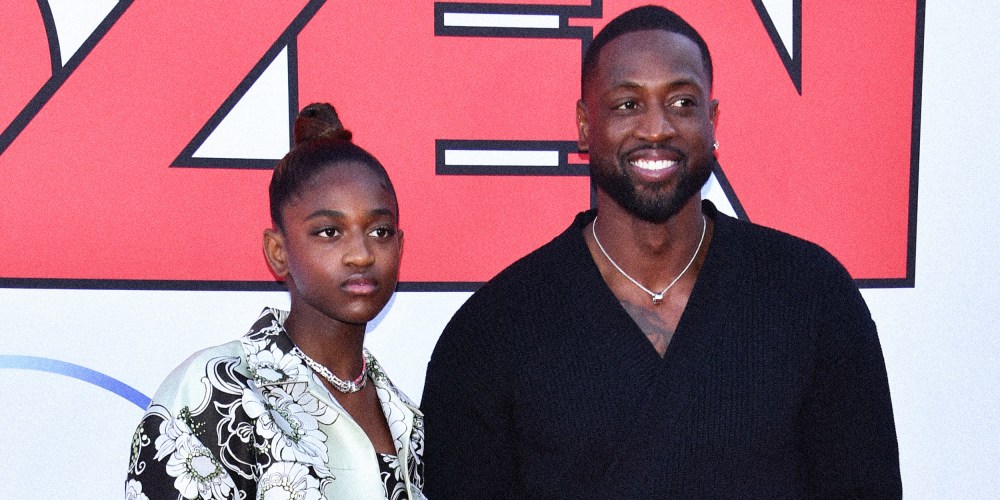NBA superstar Dwyane Wade is in a legal battle with his ex-wife, Siovaughn Funches-Wade, after she filed an objection to him legally changing their 15-year-old trans daughter’s name to Zaya. Funches-Wade wants to delay the petition until Zaya is 18, according to the filing, which claims that Wade “may be pressuring our child to move forward with the name and gender change in order to capitalize on the financial opportunities that he has received from companies.”
Funches-Wade’s statement contains in it three fundamental problems with how we treat transitioning, especially of young people.
This excerpt from Funches-Wade’s statement contains in it three fundamental problems with how we treat transitioning, especially of young people. First, it encourages adults to not listen to young people about who they are or what they want to do with their bodies — as though these huge themes that strike at the core of who we are only materialize or are to be believed after people surpass 18, the arbitrary age we’ve chosen to demarcate childhood from adulthood.
Second, and relatedly, it reinforces the idea that self-consent does not matter and that appeasing others to uphold existing power dynamics (both interpersonally and socially) is more important than doing what we want to with our bodies and how we present ourselves. Lastly, it reinforces the incredibly dangerous, flat-out lie that trans people are prone to regret transitioning (I’ll unpack the numbers but, in short, around 98% of trans people are happy they transitioned, and most often find it to be life-affirming).

I write this from personal experience. This year, I came out as trans and will be changing my name. While I’ve publicly only spoken of the joy this change has brought about in my life, I also want the opportunity to discuss the complicated reality of transitioning. Yes, it was one of the most euphoric decisions I ever made. It’s not hyperbole to say coming out felt like being able to properly breathe for the first time. But it was also followed by one of the darkest periods of my life. Not because I had any uncertainty or regret, but because of how people have reacted to my coming out.
It has been the focal point of much online hate in response to my work, with people writing such dehumanizing things to me that I cannot repeat them here. And it’s also generated a lot of upheaval for me, interpersonally; one parent has taken the news well, while the other has taken the news badly and insisted that their resistance to my coming out stems from concern for my well-being and how much harder my life will be. I appreciate that their heart is in the right place and they have made efforts to be proactive about this adjustment, but the hardest part of this experience is their difficulty supporting me.
Earlier this week, they pleaded with me: “I hope you’re not considering making any changes to your body.” They didn’t want me doing anything I might regret later, they said. I’ve already cut off my hair and changed my wardrobe, and I do intend on transitioning more — which brings me to my name. I have asked some people in my life to start calling me by my new name, but have hesitated on making it fully public because I dread having the conversation with my parent — an overdue conversation I’m compelling myself to have by writing this.
My objective here is not to shame anyone but to speak to the challenges of my reality and to share things I wish I and others around me had known before I embarked on this journey. Fundamentally, my parent’s reaction — and any resistance I’ve had from others — fall into one or more of the three buckets I mentioned above.
To the first point about believing people when they assert their identity, I will start by saying that being trans is not easy. This much I’ll concede. I’ve had unpleasant interactions in public toilets; I’ve had people I know well say really inappropriate and strange things to me; this will irrevocably change where I can travel or live; there’s the online harassment; the list goes on.
When people exhibit resistance to someone transitioning — or to expressing themselves however they want to — it cuts at the heart of our collective murky relationship with consent.
The more I discover about the trans experience, the more I learn the extent of online harassment and bullying as a near-universal theme. Zaya has a famous parent and her family lives in the spotlight, under intense scrutiny, making her even more vulnerable to attacks and harassment; one can only conclude, then, that she would not “subject herself,” as it were, to such backlash if she didn’t feel more stifled by the alternative. In fact, because of the extent of online harassment and vitriol, Wade disabled the comments on Zaya’s Instagram in September in order to protect her “mental health and privacy.”
For Zaya’s mental health and privacy we’ve decided not to allow the hate into her comments. Thank you for wanting to spread and send her love 🫡 https://t.co/tmjMUGtcVf












